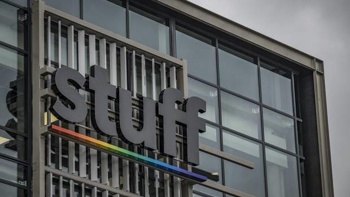European leaders have accused Greece at an emergency summit of failing to produce concrete proposals for a new bailout to keep it in the euro after Greeks defiantly voted against further austerity.
Greece's leftist prime minister Alexis Tsipras faced his 18 eurozone counterparts for the fraught talks in Brussels on Tuesday, while at home Greek banks remain closed and fears grow that the economy could implode.
The new Greek finance minister also met colleagues from the currency union, but Eurogroup head Jeroen Dijsselbloem said that Athens had not put forward new reform plans even though it was expected to formally request more cash on Wednesday.
German Chancellor Angela Merkel said as she arrived for the crisis summit that "we still do not have the basis for negotiations" for debt-stricken Greece to get its third bailout program since 2010.
"It is not a question of weeks any more, but a question of a few days," warned the leader of Europe's biggest economy, who faces huge domestic pressure to be tough on Greece.
French President Francois Hollande meanwhile urged Greece to present "serious, credible proposals", adding that to keep Athens in the single currency "it is this week that decisions must be made".
With the clock ticking for Greece's cash-starved banks, Tsipras held four-way talks with Merkel, Hollande and European Commission chief Jean-Claude Juncker minutes before the main summit.
A Greek government source insisted that Athens had made improvements to the proposals it had initially submitted on June 30, the day that Greece's bailout expired and it defaulted on a huge IMF loan payment.
The summit comes two days after Greeks voted by 61 per cent to reject reform terms for a new EU-IMF bailout in a hastily-arranged referendum that was a political victory for Tsipras but infuriated Europe.
Tsipras is expected to call for debt relief to cut Greece's massive 320 billion euros ($A471.91 billion) debt mountain but that is a red line in many European capitals, especially in Berlin and the newer eastern members of the eurozone.
A bridging loan is another possibility to get Greece through a huge payment of more than 3 billion euros to the European Central Bank on July 20, officials say.
But anxiety is building over the possibility that Greece could be forced out of the eurozone, an event that would cause a seismic shock not only for Athens but for the rest of Europe and the world economy.
US President Barack Obama held a telephone call with Tsipras before Tuesday's summit, reflecting the growing global concerns about economic contagion from the Greek crisis.
When asked if a so-called "Grexit" from the single currency was possible, EU Commissioner for the euro Valdis Dombrovskis said: "If trust is not rebuilt, if there is no credible reform package, it cannot be excluded".
Greece's new Finance Minister Euclid Tsakalotos made his first appearance at Tuesday's Eurogroup meeting, a day after his outspoken motorbike-riding predecessor Yanis Varoufakis resigned amid a rift with Athens's creditors.
Dijsselbloem said the Oxford-educated Tsakalotos had "submitted no new proposal today" but that Greece was expected to send a letter to the EU's bailout fund, the European Stability Mechanism, by Wednesday.
Eurozone finance ministers will hold a teleconference to discuss the request on Wednesday, the same day that Tsipras is due to address the European Parliament in Strasbourg.
Take your Radio, Podcasts and Music with you








